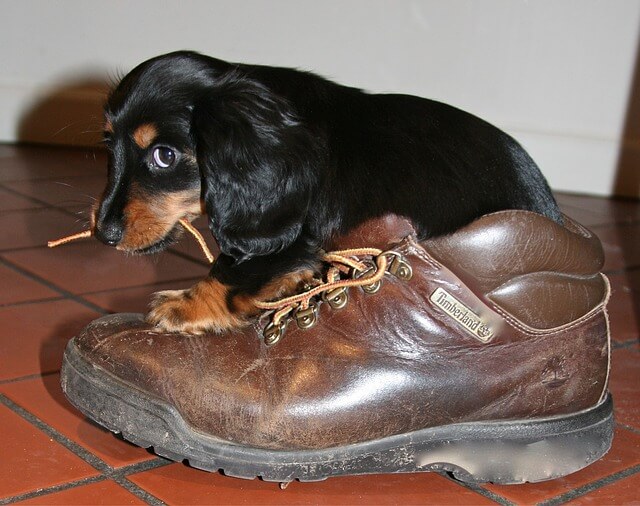The Canine Behavioral Assessment and Research Questionnaire (C-BARQ) is an online survey that asks owners to rate their dogs on nearly three dozen problem behaviors. The questionnaire also records the breed, size, and weight of each participating pooch.
A study based on 8,301 C-BARQ profiles of dogs representing 49 breeds found that the owners of smaller dogs reported more behavioral issues than those with larger breeds.

The study took into account various combinations of height, weight, and head shape, and found that these factors were significantly related to 90% of the negative C-BARQ behavioral traits.
**Remember, these findings are based on owners’ personal feelings about their dogs’ behaviors. Not all small dogs have behavioral problems and not all large dogs are perfect pets!

The owners of short breed dogs reported significantly higher rates of begging, attachment problems, fear of other dogs, rolling in feces, sensitivity to touch, anxious house soiling, humping, and difficulty with training.
When it came to weight, lighter breeds were found to be more excitable, hyperactive, competitive with other dogs, and likely to run away from home, according to owner surveys.

Head shape also played a role in certain behavioral characteristics, although not as significantly as size and weight. Owners of long-nosed dogs reported more incidences of inappropriate chasing and fear of strangers. Those with short-muzzled pups noted more problems with attacking other dogs, and the combination of short dog plus long snout – like the Dachshund – ranked high for persistent barking.

All tolled, owners reported their smaller breed dogs to have more problems with nearly all of the 30 C-BARQ behaviors related to body size. According to the study authors:
“Generally, undesirable behaviors become more common or pronounced as height and weight decrease.”

When it comes to the question of nature vs. nurture, the researchers suggest that small dogs’ psychological problems have roots in both areas. They suggest that since dogs are not capable of inflicting nearly as much damage as big dogs, owners and breeders are more likely to tolerate aggressive behavior, allowing the genes associated with biting to persist over time.

In fact, an earlier C-BARQ study found that Chihuahuas and Dachshunds were the breeds most likely to attack people. It’s worth noting that Pit Bull-type dogs ranked in the middle of the pack – about as likely to attack as Poodles.

Genetic selection for characteristics we consider “cute” and “babyish” may carry the unintended side effects of behaviors such as begging, attention-seeking, and inappropriate urination. However, these problems may be entirely man-made. The tendency to overindulge smaller breeds may reinforce the jealousy, begging and attention-seeking so often reported.

If you would like to find out how your dog ranks on the C-BARQ, click here to take the free survey. Your results will pinpoint the areas of behavior you should work on with your pup and help animal researchers learn more about canine behavior and temperament.
H/T to Psychology Today
